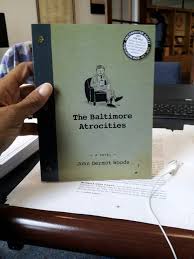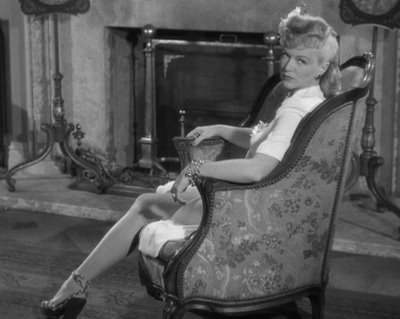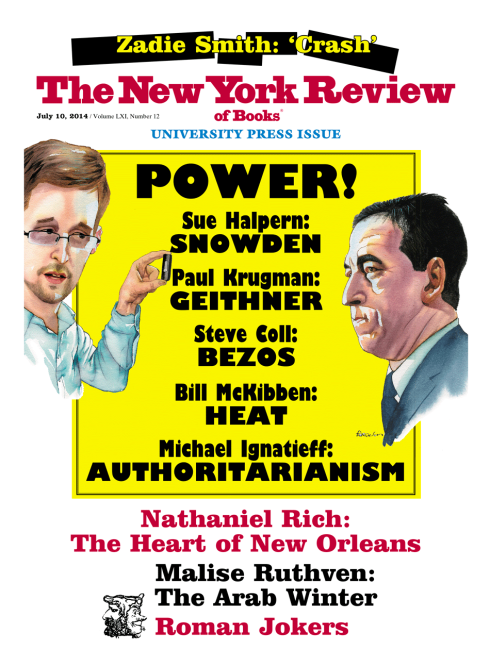I am a big fan of writer Pete Dexter, whom I discovered around the time his National Book Award-winning Paris Trout was published. I was pleased to have a conversation with him for his novel Brotherly Love circa 1991.The publication of one of Dexter’s fictions causes me to suspend my required reading to take it up. Happily, Dexter has never disappointed. Here’s one of his droll insights from his 2003 novel Train:
He runs the Cassidy crime family. Little people with enormous heads, every one if them. And they’ve all have been shot in the head, and they never die They believe it’s the luck of the Irish—they walk around thinking they were all born lucky—and it never occurred to any them yet that if they were that fucking lucky, they wouldn’t keep getting shot
The Daily Beast has re-published a 34 year newspaper column A Dog Dies, A Boy Grows up
…reading Dexter’s columns you can see why he’d go on to become one of our great novelists…this story, which originally ran in the [Philadelphia] Daily News on June 2, 1980 appears as it did in the paper. In just under 1,000 words it stands as a stirring example of powerful newspaper writing at its best.”
Pete Dexter’s last novel Spooner which had autobiographical overtones was a wonderful story full of his Talmudic humor.
It take it on board that writing /creating a must read oracular 800 word column year after year is a challenge. Maureen Dowd has been at it for while and while I no longer feel she is a must-read (like her colleague Gail Collins) occasionally I check in with her commentary. Her June 14 exposition opened with:

The Bush Gang of Four[/caption
NO one wrote about blondes like Raymond Chandler.
“There is the small cute blonde who cheeps and twitters and the big statuesque blonde who straight-arms you with an ice-blue glare,” he wrote in “The Long Goodbye.” “There is the blonde who gives you the up-from-under look and smells lovely and shimmers and hangs on your arm and is always very, very tired when you take her home.”
There’s the pale, anemic, languid blonde with the soft voice. “You can’t lay a finger on her,” Chandler notes, “because in the first place you don’t want to and in the second place she is reading ‘The Waste Land’ or Dante in the original.” And when the New York Philharmonic is playing Hindemith, he writes dryly, “she can tell you which one of the six bass viols came in a quarter of a beat too late. I hear Toscanini can also. That makes two of them.”
Can you guess who Dowd was writing about?
[caption id="attachment_5093" align="aligncenter" width="300"] Beyonce on Time magazine’s 100 “Influential People” Issue
Beyonce on Time magazine’s 100 “Influential People” Issue
The circumstances under which Time magazine become irrelevant never occurred to me—until I saw a recent cover for its “100 Most Influential People” issue. Beyonce, the entertainer graces one version.
Novelist Tim Parks offers some cogent rumination in Reading: The Struggle, concluding:
I will go out on a limb with a prediction: the novel of elegant, highly distinct prose, of conceptual delicacy and syntactical complexity, will tend to divide itself up into shorter and shorter sections, offering more frequent pauses where we can take time out. The larger popular novel, or the novel of extensive narrative architecture, will be ever more laden with repetitive formulas, and coercive, declamatory rhetoric to make it easier and easier, after breaks, to pick up, not a thread, but a sturdy cable. No doubt there will be precious exceptions. Look out for them.
I wonder how many times Dick Cheney has to remind the world he is still a free man before someone gets the idea that he should be tried as a war criminal. Maybe the same brave Spanish magistrate who issued summons to Henry Kissinger and General Augusto Pinochet?
I had the pleasure of chatting with Bob Shaccochis last year on the occasion of his grand novel The Woman who Lost Her Soul where he talked about his rancher neighbors’ antipathy to dogs. The recent reports of a mad dog cop in Baltimore killing a dog reminded me of that chat:
Other than your wife, are there long periods when you don’t speak to anyone?
Yeah and there are two, two and half months when my wife isn’t there. Her professional life is centered around Florida, and she has to be there. But I am not lonely. I do get horny. My dogs are all I need to be happy. Then her, in that order (laughs). It’s the same for her — dogs first, me second. I made some friends downhill from me — people who live in a village that is their ancestral home. They are Spanish. If you say Mexican, it’s like calling them “niggers.” They told me, “We got rid of the Indians and we are not through yet. You are on our land.” They have grazing rights in the forest and sometimes they will yell at me because my dogs upset the cattle, “Control your dog or we’ll kill it.” I said, “If you kill my dog, I am burning down your house and killing everybody in it. And after we burn down your house I’ll get a bulldozer destroying what’s left and then I’ll be salting the fucking earth.”
It turns out that a few months later said neighbor did shot one of Shaccochis’s Irish Setters and he had him charged, tried , convicted and incarcerated for that murder.

And in an incidence of cosmic confluence , I received a novel entitled The Baltimore Atrocities( Coffee House Press) by John Dermot Woods.Here’s what I found on the Web (his own web site seems to be out of action). He declares:
JDW: Like a lot of creators, I make myself reinvent the wheel for each project. It’s partially an attempt to overcome my tics and ingrained narrative habits. Of course, it doesn’t really work. But, if I didn’t try to change my approach completely each time, then I think my work would be exceptionally repetitive. I like control, structure, and dioramas–worlds I can control. This can lead to an over-emphasis on constraint and smallness. I’m not naturally inclined to improvise and let things fly. I have to give myself little challenges to open up my work. (Working with J.A. on No One Told Me was great in this way. He encouraged me to just push forward. I didn’t even pencil out those drawings before I committed ink and paint to paper.)
My problem with political correctness is not the correctness part—its the kind of knee jerk response that dismisses the shadings of meaning and value in the world. Take for instance the rage of all right thinking Americans that the Washington Redskins nomenclature is a slur on the existence of America’s native peoples. And the campaign by assorted parties to shed that rubric has now included the US Patent Office. Personally I think it matters not one bit whether the Washington NFL franchise is called the Redskins, The Kikes, The Darkies or the Gooks. At least billionaire owner Dan Snyder is throwing some money in the pot with the creation of a foundation to benefit native americans. And perhaps all those rallying to this cause would redouble their efforts to raise our benighted Indian peoples from the sorry state that the US government has put them in. Its worth noting that Indian fighter US Army General Sherman observed of the Indian reservations “…are worthless patches of land surrounded by scoundrels.
Coverage of professional sports, especially championship competition produces produces tonnage of verbiage I( one thinks of the Manila [Philippines] Municipal Dump). The recent San Antonio Spurs versus Miami Heat was no exception. I don’t recall one memorable column or thought except this clever observation from the fifth game of the series,
“They[Spurs] turned their defenders from the Miami Heat into well-compensated traffic cones.”
The New York Times chose Micheal Kinsley to review Glen Greenwald’s book about the Edward Snowden affair and NSA/US government spying. Kinsley trashes the book, calls Greenwald is a “self-righteous sourpuss” and validates the government’s right to massive unfettered surveillance of its citizens.
Greenwald and others respond here:
Do I need to continue to participate in the debate over whether many U.S. journalists are pitifully obeisant to the U.S. government? Did they not just resolve that debate for me? What better evidence can that argument find than multiple influential American journalists standing up and cheering while a fellow journalist is given space in The New York Times to argue that those who publish information against the government’s wishes are not only acting immorally but criminally?
Though I am no fan of soccer I did pay attention to the books on the sport. And thus I came across public blowhard Ilan Stavans self serving piece Why Has Literature Ignored Soccer? first he dismisses Eduardo Galeano’s Soccer in Sun and Shadow, ”
,“Translated into English last year, it is his usual impressionistic hodgepodge of politics and history, less an insightful investigation that a series of forgettable haikus.”
Then this advertisement for himself
In my estimation, the best, most intelligent—and reliable—observer of the role of soccer in Latin American society is Juan Villoro. He has been in all the most recent World Cups as a TV commentator, including the last one in South Africa in 2010. Villoro and I recently published a book-long dialogue, El ojo en la nuca (2014), which talks, in passing, about his experiences.
Ilan Stavans is a Putz
Currently reading My Struggle by Karl Ove Knausgaard and translated by Don Bartlett(Archipelago Books)
![Pete Dexter circa 2009 [photo:Robert Birnbaum]](https://ourmaninboston.wordpress.com/wp-content/uploads/2014/06/pete-dexter.jpg?w=490&h=367)



![Bob Shaccochis [photo: Robert Birnbaum]](https://ourmaninboston.wordpress.com/wp-content/uploads/2014/06/shachochis-i.jpg?w=490&h=653)
![1/ 3 of San Antonio Spurs[photo borrowed from Hardwood Paroxysm]](https://ourmaninboston.wordpress.com/wp-content/uploads/2014/06/tim-duncan-manu-ginobili-tony-parker-kawhi-leonard-nba-playoffs-portland-trail-blazers-san-antonio-spurs.jpg?w=490&h=326)

